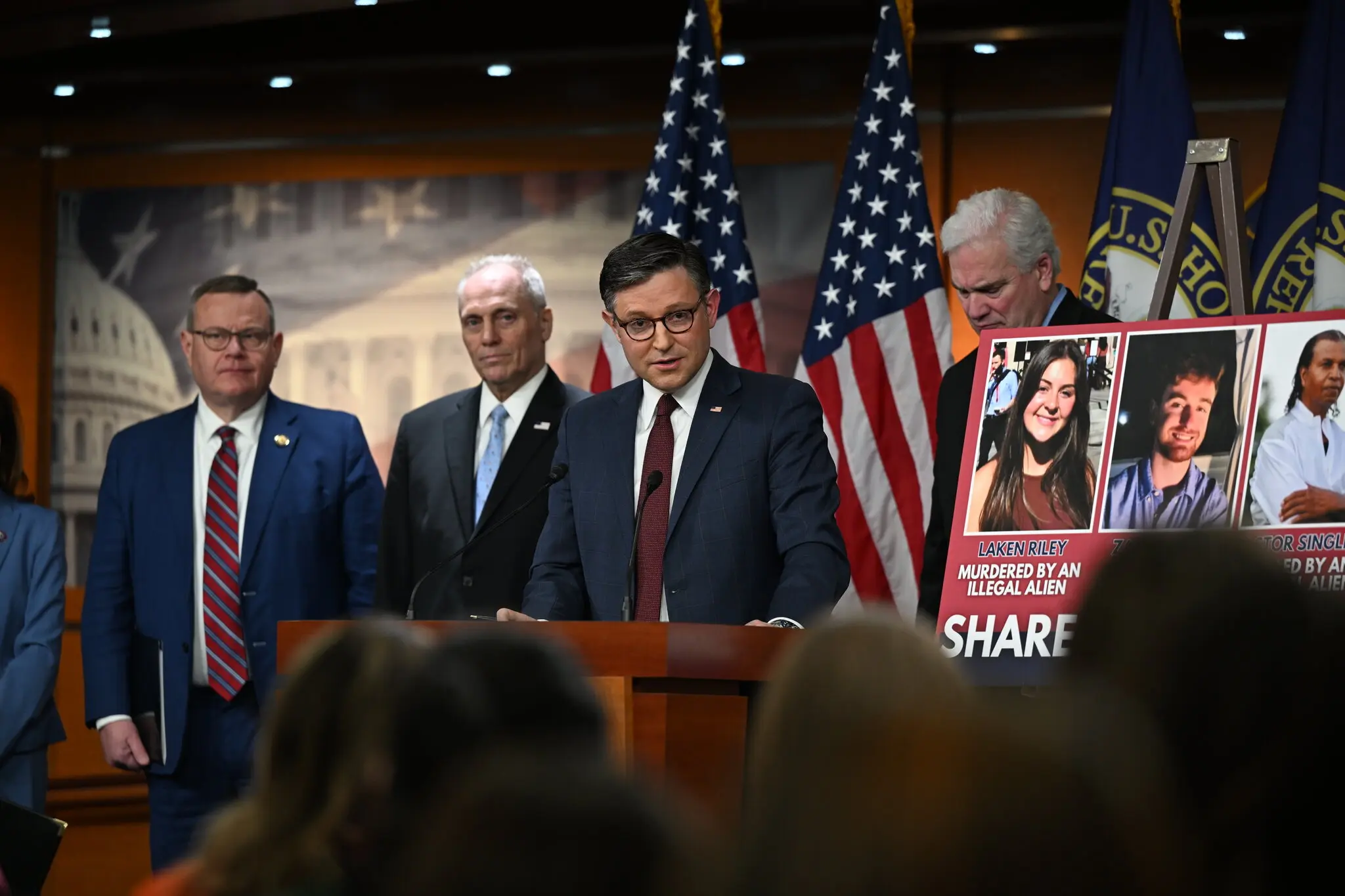House Passes GOP Budget, Paving the Way for Major Tax and Spending Cuts
The House of Representatives has passed a Republican-backed budget resolution, setting the stage for significant tax reductions and spending cuts. This move marks a major step in advancing former President Donald Trump’s domestic policy agenda while intensifying intra-party debates over funding allocations.
A Narrow Victory in the House
In a tight 217-215 vote, the House approved a budget resolution that outlines $4.5 trillion in tax cuts alongside $2 trillion in federal spending reductions over the next decade. The measure is seen as a crucial precursor to broader legislative efforts that align with Trump’s fiscal policies.
The decision has sparked intense debate within the Republican Party. While many GOP members support the tax cuts, disagreements persist over which federal programs should be scaled back to offset the costs. The budget’s passage followed a tumultuous series of events, including a last-minute reversal where Republican leaders reinitiated the vote after initially canceling it due to lack of support.
Overcoming Internal GOP Struggles
The chaotic proceedings highlighted the challenges House Republicans face as they push for comprehensive tax reforms and budget restructuring. Many conservatives had demanded deeper spending cuts, while centrist Republicans from competitive districts hesitated over the potential reduction in Medicaid funding, which serves over 70 million Americans.
Ultimately, the resolution secured passage with backing from hesitant Republicans who feared voter backlash over potential social program cuts. Representative Victoria Spartz of Indiana changed her stance after receiving a “personal commitment” from Trump to safeguard and improve healthcare services.
The Road to Reconciliation
With the budget resolution passed, the Republican leadership aims to leverage the reconciliation process, allowing them to bypass a Senate filibuster and approve fiscal policies with a simple majority vote. Speaker Mike Johnson emphasized the urgency of this step, stating, “This is just the beginning of a long and consequential process.”
The blueprint imposes a $4.5 trillion cap on tax cuts over the next ten years but does not specify which taxes will be reduced. Additionally, it calls for $2 trillion in spending cuts, with Medicaid and food assistance programs likely among the targets. The budget also allocates an additional $300 billion for border security and defense.
Implications for Tax and Social Programs
While Republicans are eager to implement sweeping tax cuts, a significant portion of the revenue will be needed to sustain the 2017 tax policies set to expire at the end of the year. Extending these policies is estimated to cost around $4 trillion over the next decade, leaving little room for additional tax relief measures.
The GOP’s plan has also raised concerns regarding Medicaid. With many states expanding Medicaid under the Affordable Care Act, Republicans have proposed cutting federal funding, potentially impacting coverage for up to 20 million low-income Americans. This move has triggered strong opposition from Democrats, who argue that the proposed budget will harm middle-class families and increase the national deficit.
Challenges in the Senate
Despite House approval, the budget resolution faces additional hurdles in the Senate, where Republican lawmakers have divergent views on tax policy and spending reductions. Some Senate Republicans have advocated for a more focused approach, prioritizing border security and defense over broader tax cuts.
As the debate continues, both parties are preparing for an intense legislative battle that will shape the country’s fiscal policies for years to com
